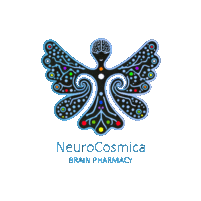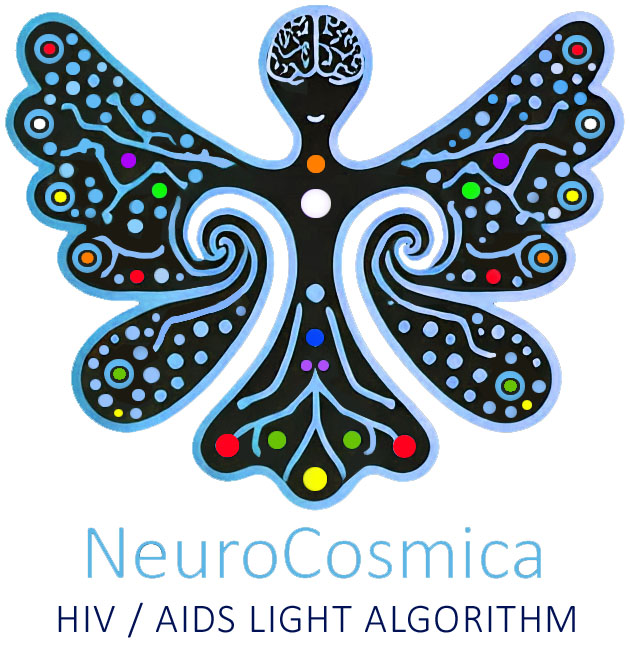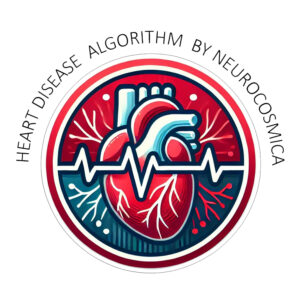NeuroCosmica: HIV/AIDS Light Algorithm
Brief Description of HIV/AIDS: Human Immunodeficiency Virus (HIV) is a virus that attacks the body’s immune system, specifically the CD4 cells (T cells), which help the immune system fight off infections. If untreated, HIV can lead to Acquired Immunodeficiency Syndrome (AIDS), the final stage of HIV infection where the immune system is severely damaged. People with AIDS are at higher risk of severe illnesses and infections.
Causes of HIV/AIDS: HIV is primarily transmitted through:
- Unprotected Sexual Contact: Sexual contact with an infected person without using protection.
- Blood Transfusion: Receiving blood contaminated with HIV.
- Sharing Needles: Sharing needles with someone who has HIV.
- Mother-to-Child Transmission: During pregnancy, childbirth, or breastfeeding.
- Other Means: Exposure to infected bodily fluids through broken skin or mucous membranes.
Recommended Exercise Routine for Individuals with HIV/AIDS: Regular physical activity can help manage symptoms, improve overall well-being, and support immune function. Here are some exercise recommendations:
- Aerobic Exercise: Engage in moderate-intensity aerobic activities such as walking, swimming, or cycling for at least 150 minutes per week to improve cardiovascular health and reduce stress.
- Strength Training: Include strength training exercises two to three times a week to build muscle mass and maintain bone density. Use light weights, resistance bands, or body-weight exercises like squats and push-ups.
- Flexibility Exercises: Incorporate stretching exercises to improve flexibility and reduce muscle tension. Yoga and gentle stretching can also enhance relaxation.
- Balance Exercises: Perform balance exercises to prevent falls and improve stability. Simple exercises include standing on one foot and heel-to-toe walking.
- Consistency: Maintain a regular exercise routine, but listen to your body and avoid overexertion. Modify exercises as needed based on energy levels and physical condition.
Healthy Diet Recommendations for Individuals with HIV/AIDS: A balanced diet can support overall health, enhance immune function, and improve energy levels. Here are some dietary recommendations:
- Fruits and Vegetables: Consume a variety of colorful fruits and vegetables rich in vitamins, minerals, and antioxidants to support immune function and reduce inflammation. Foods high in vitamin C, such as oranges, strawberries, and bell peppers, can be particularly beneficial.
- Whole Grains: Choose whole grains like brown rice, quinoa, oats, and whole wheat bread to provide sustained energy and support digestive health.
- Lean Proteins: Include sources such as fish, poultry, beans, legumes, and low-fat dairy to support muscle health and repair.
- Healthy Fats: Incorporate healthy fats from sources like olive oil, avocados, nuts, and seeds to support brain health and reduce inflammation. Omega-3 fatty acids found in fish like salmon and flaxseeds can be particularly beneficial.
- Hydration: Drink plenty of water to stay hydrated and support overall bodily functions.
- Fiber: Eat high-fiber foods to promote digestive health and prevent constipation. Include foods like fruits, vegetables, whole grains, and legumes.
- Antioxidant-Rich Foods: Include foods rich in antioxidants, such as berries, dark leafy greens, and green tea, to help protect cells from damage.
- Limit Processed Foods: Reduce intake of processed foods, sugary drinks, and high-fat snacks to avoid additional strain on the body.
- Small, Frequent Meals: Eat smaller, more frequent meals to help manage energy levels and maintain weight.
NeuroCosmica: Potential Benefits of Light Algorithms for HIV/AIDS
1. Enhancing Immune Function: Light algorithms can use specific colors like red and blue to support and enhance immune function, helping the body to better manage symptoms and infections.
2. Reducing Stress and Anxiety: Living with HIV/AIDS often brings significant stress. Light therapy with calming colors such as blue and violet can help alleviate these feelings, promoting relaxation and a sense of calm.
3. Improving Sleep Quality: Sleep disturbances are common in individuals with HIV/AIDS. Light therapy can help regulate circadian rhythms and improve sleep quality, leading to better rest and overall health.
4. Boosting Energy Levels: Fatigue is a common issue in HIV/AIDS. Light therapy can boost energy levels, helping individuals feel more active and engaged in their daily activities.
5. Promoting Emotional Balance: Emotional stability is crucial for managing HIV/AIDS. Light algorithms can help regulate emotions, preventing mood swings and fostering a balanced emotional state.
6. Enhancing Mental Clarity and Focus: Managing the demands of HIV/AIDS can cause stress and affect cognitive functions. NeuroCosmica’s light therapy can enhance mental clarity and cognitive functions, making it easier to stay focused and productive.
7. Encouraging Positive Mindset: A positive mindset can significantly impact the well-being of individuals with HIV/AIDS. Light therapy can promote feelings of optimism and resilience, helping them approach their condition with a positive attitude.
8. Enhancing Social Connections: Positive interactions with friends, family, and support groups are vital for well-being. Light therapy can improve mood and social interactions, helping individuals form healthier and more positive relationships.
9. Supporting Physical Health: By reducing stress and improving sleep, NeuroCosmica’s light therapy can contribute to better physical health, supporting overall well-being during HIV/AIDS management.
10. Creating a Positive Environment: Using light therapy to create a serene and uplifting environment can provide a healing space that supports the overall well-being of individuals with HIV/AIDS.
Integrating NeuroCosmica’s Light Algorithms into the care plan for individuals with HIV/AIDS can provide a unique and effective approach to enhancing their overall well-being. The holistic benefits of light therapy address various aspects of health, helping to improve mood, reduce stress, support immune function, and ultimately improve the quality of life for those managing HIV/AIDS.
Important Note: Remember that NeuroCosmica treatments and/or recommendations should not replace the recommendations, treatments, and prescriptions of your doctor, specialist, psychologist, or other professional currently treating you.





Reviews
There are no reviews yet.